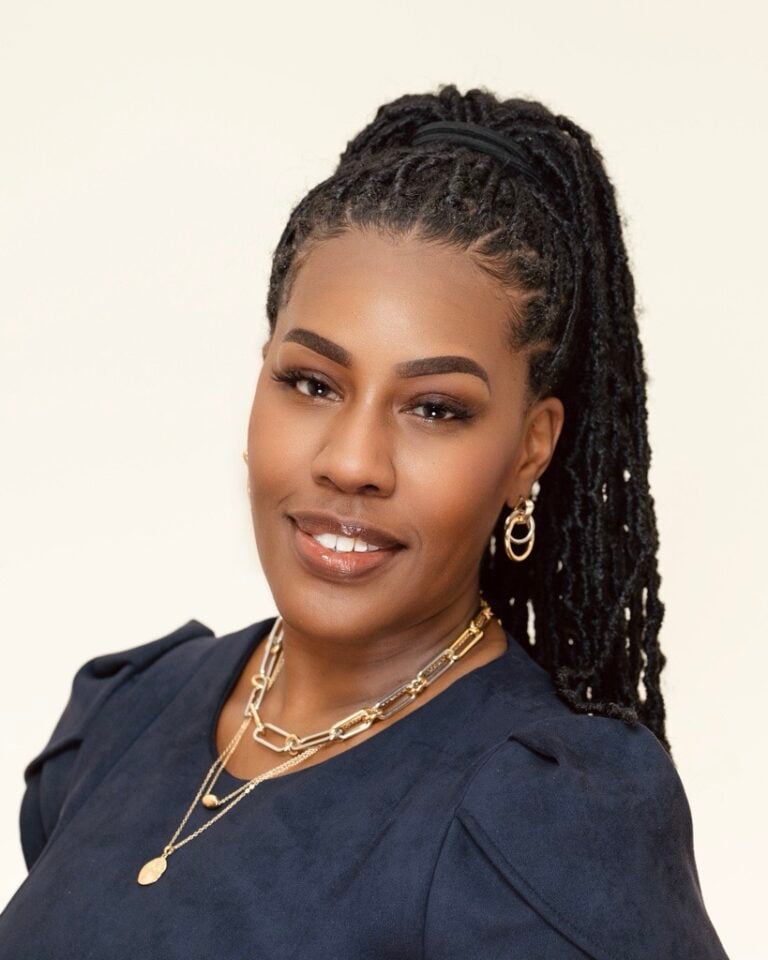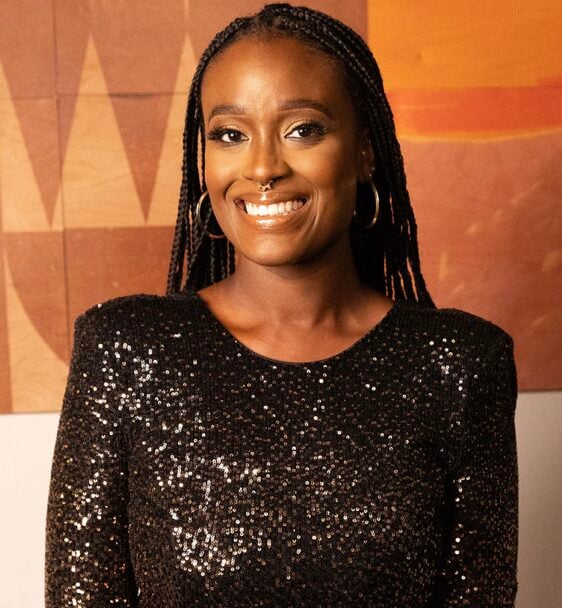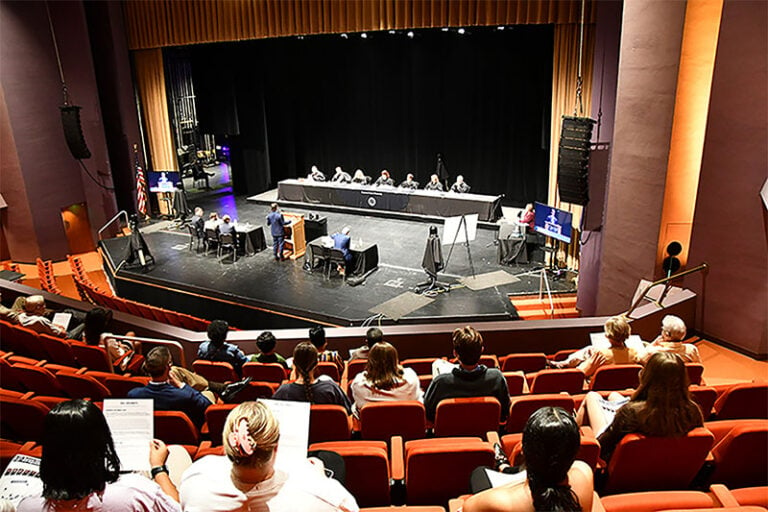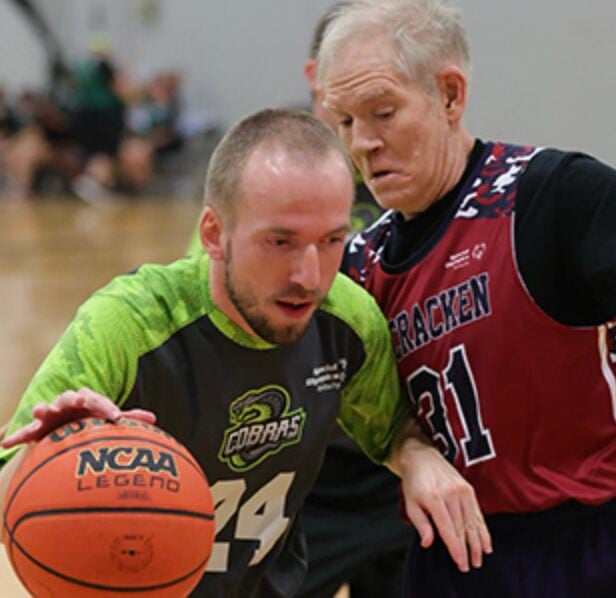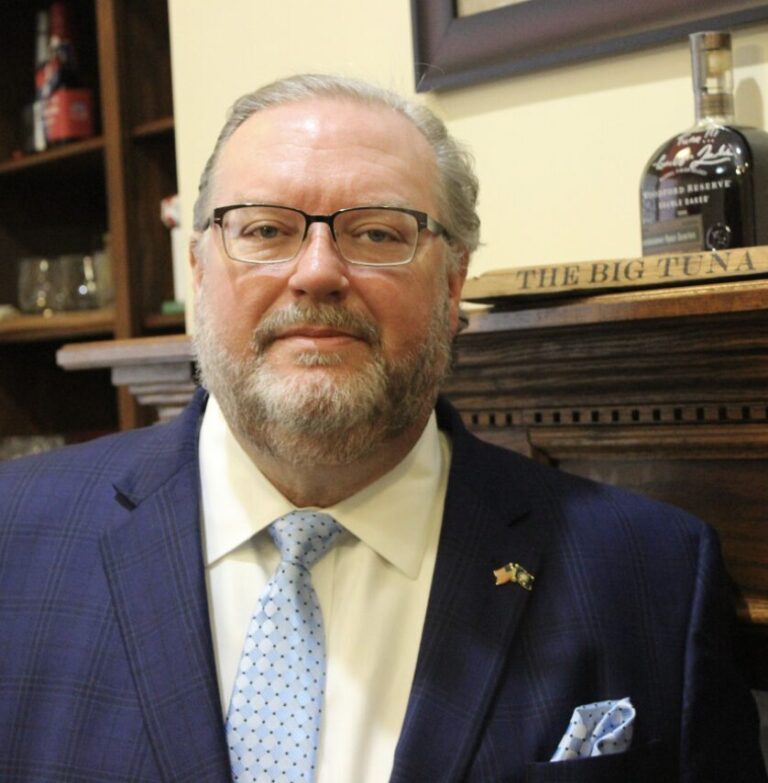By Mark Hansel
NKyTribune managing editor
Sarah Giolando, chief strategy officer at St. Elizabeth Healthcare, was invited to the White House last month to participate in President Barack Obama’s Precision Medicine Initiative Summit. Giolando, one of just 150 healthcare professionals from across the country invited to the summit, talked to the Trib about the experience and the importance of precision medicine.
When Sarah Giolando attended a symposium at the Mayo Clinic in Rochester, Minnesota, a few years ago, she had no idea her focus on precision medicine would lead her to the White House and a summit that included President Barack Obama.
Precision medicine tailors treatment and prevention strategies to people’s unique characteristics, including their genome sequence, microbiome composition, health history, lifestyle, and diet.
“Mayo plays a lot in this space, using unique characteristics of an individual to either diagnose or treat a condition in therapies,” Giolando said. “I was transfixed by it; to me it made a lot of sense.”
Part of the research focus involves understanding exactly how the genetic code relates to different disease states or how it can identify the predictive capabilities of diseases.
Translational research puts those efforts it into clinical practice, making sure that people are utilizing the data that is available.
The pharmaceutical industry makes prescriptions for the masses, but everyone is different. Doctors will often try something that works for a large percentage of people or that has been supplied by a pharmaceutical representative, which makes sense, but does not always provide a solution.
“There are a lot of patients that get caught in that gap and are either searching for the right treatment or are one of those that those prescriptions do not work for,” Giolando said. “To me, the fact that we have the knowledge to know what is right for you and what is wrong for you and are not putting it into clinical practices – we need to get there.”
Through her research into precision medicine Giolando met and began working with Sunnie Southern, founder and CEO of Cincinnati-based Viable Synergy.
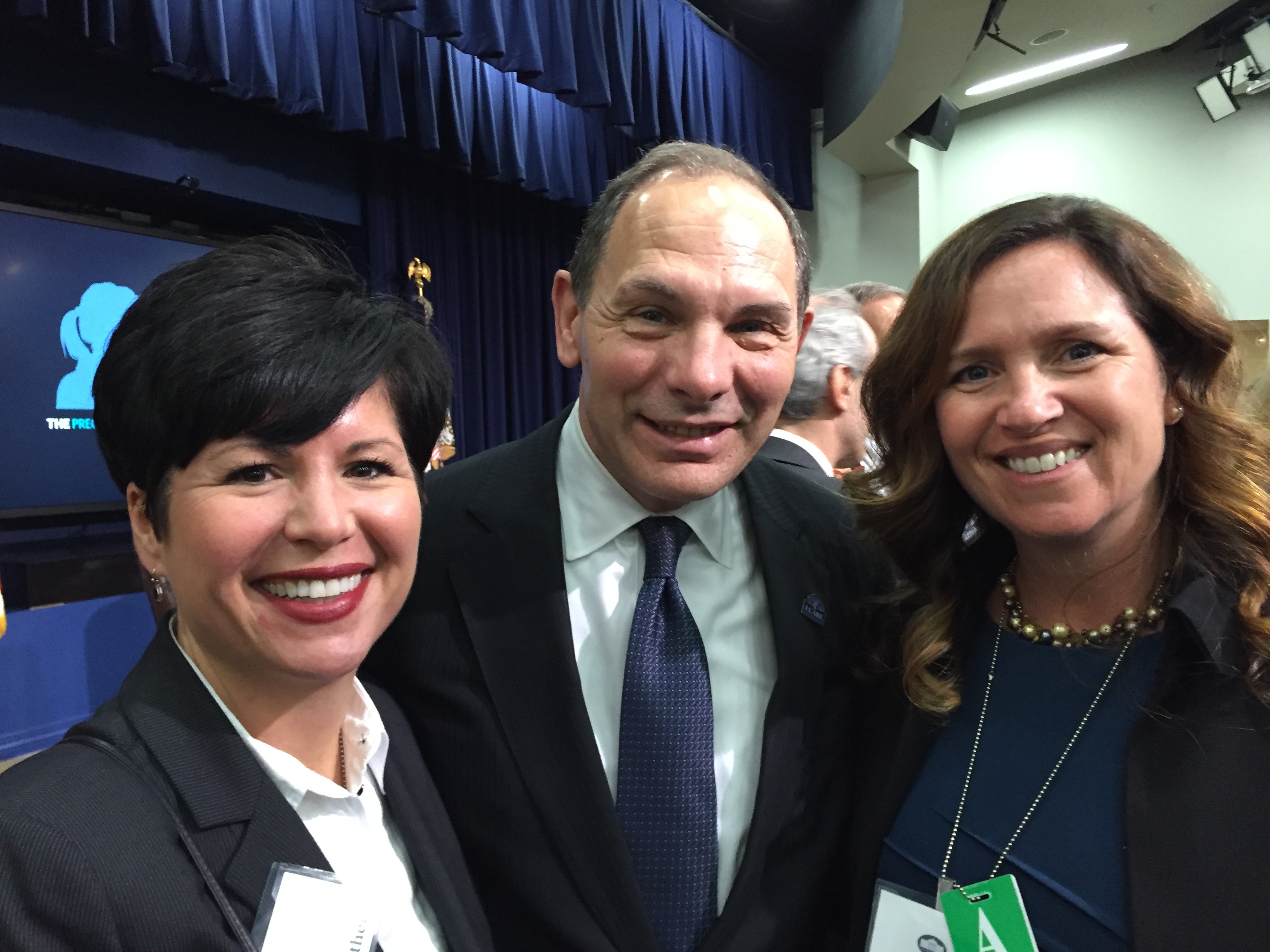
Viable Synergy developed Innovation Station, which provides a platform for people who have heath care information to distribute it and people who need the information to get it.
Southern, who also attended the summit, was contacted by Maya Uppaluru, a White House policy advisor, for suggestions on healthcare professionals who could contribute to the conference.
Southern knew Giolando had been working with Assurex Health in Mason, which looks at five different genetic markers to predict how well behavioral health medications fit with a genetic profile.
“We were involved in a pilot study at of one of our practices,” Giolando said, “The way to get it right is to understand which medicine and at what dose will work for you.”
Giolando submitted information to the White House outlining St. Elizabeth’s commitment to using precision medicine in behavioral health research and was invited to participate in the summit.
President Obama announced the Administration’s commitment to precision medicine at the 2015 State of the Union Address. He dedicated $215 million in the 2016 budget, most of which went to the National Institute for health.
Some funds were also allotted for the National Institute of Cancer and the Department of Veterans Affairs (VA) to do some specific things around the collection of genetic samples.
The goal was to collect samples from one million patients across the nation of all races and ethnic backgrounds. A wider spectrum of information is needed because studies tend to be focused on white males, but genetic makeups are different, based on origin.
The summit, which included members from 40 organizations, provided an opportunity to gauge the progress of current efforts and discuss ways to move forward.
There is a lot of completion for funding and researchers tend to be very protective of their findings. The willingness to share information, Giolando said, demonstrates a recognition of the enormous impact precision medicine could have on individual health care.
The impact of precision medicine
The summit took place in the Eisenhower Building, which is just adjacent to the White House and is the location of the office of Vice President Joe Biden and much of the president’s administrative staff.
Giolando and Southern arrived early to get a good seat and after jostling for position with some aggressive New Yorkers managed to secure seats in the second row.
“After claiming our space, it was really very collaborative,” Giolando said. “A lot of people knew each other, but I did not know a lot of people.”
The group heard success stories from some of the people whose lives had been changed, or saved, using precision medicine.
There was Jennifer Bittner, who had been diagnosed with stage four metastatic breast cancer and given three months to live. The genetic source of the cancer was located and treated with chemotherapy and six weeks later, she was cancer free.
Another story focused on a wheelchair-bound child had a genetic mutation that made it impossible for him to produce a substance that others produce naturally. The boy’s father purchased an over the counter supplement, took it himself to make sure it was safe and began giving it to his son.
Within two months, the boy was playing basketball.
“There were a lot of stories like this,” Giolando said. “These are people that are not waiting for FDA approval. It’s like Makerspace and the patients themselves or the parents are figuring this stuff out.”
Bob McDonald, the former Procter & Gamble CEO who is now Secretary of Veteran Affairs, talked about the Million Veterans Program, designed specifically to collect DNA from veterans. The medical records of Veterans are on file and the ability to tie the genetic code to those records can help identify conditions and treatment options.
“VA can do that with appropriate patient consent, but across the nation there are thousands of medical records in different silos,” Giolando said “If that collective information could be harnessed the process could advance more quickly.”
A panel discussion with a high-profile participant
Tension began to build as a young physician introduced members of a panel discussion led by the Atlantic’s Dr. James Hamblin. President Obama was the fourth and last panelist to be introduced, which Giolando said, only heightened the excitement.
“He was incredibly articulate on the subject matter and very passionate about it,” Giolando said.
The Commander in Chief participated in the discussion for about 45 minutes and somewhat uncharacteristically went off script and apologized to a panelist for speaking out of turn.
“I know that you’re supposed to go next but I’m going to hijack this just for one second,” he said. “We’re in my house.”
Giolando said the President’s participation and his passion for the initiative was inspiring. to say the least.
“At one point he said, ‘We will look back on this day and know that we revolutionized medicine,’” Giolando said. “He talked about the need for collaboration and talked about we can make steps forward if we all work separately, or we can make great leaps forward of we work together.”
A transcript of the panel discussion is available here .
Vice President Joe Biden, who lost a son to cancer, is equally as passionate about the precision medicine initiative. While unable to attend the summit, the vice president sent a letter to the members of the summit, thanking them for participating.
Following the panel discussion, participants split into breakout sessions to focus on different Topics, Giolando was assigned to a group that discussed equity.
“I think in part because our commitment was around behavioral health and when you think of that, there are so many people that aren’t getting the treatment that they need,” Giolando said. “There were not a lot of healthcare providers there, outside of big academic systems on the research side. There were mostly scientists and a lot of data people there because a big pillar of this is about the ability to share data across pillars and platforms.”
President Obama’s final term is nearing an end, but Giolando is optimistic that the commitment to precision medicine will increase, regardless of the outcome of the November election.
“I think this is very much a bipartisan issue, at least I hope so,” Giolando said. “This is the type of funding that we need to double down on.”
Mark Hansel is managing editor of the NKyTribune. Contact him at mark.hansel@nkytrib.com







